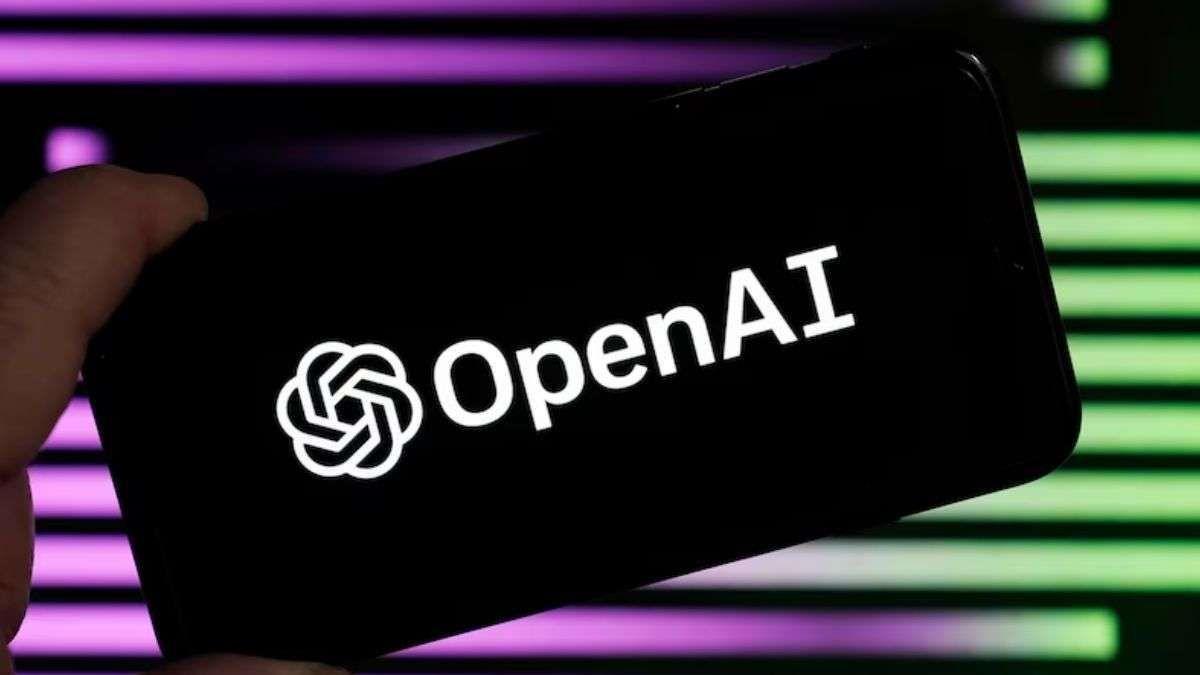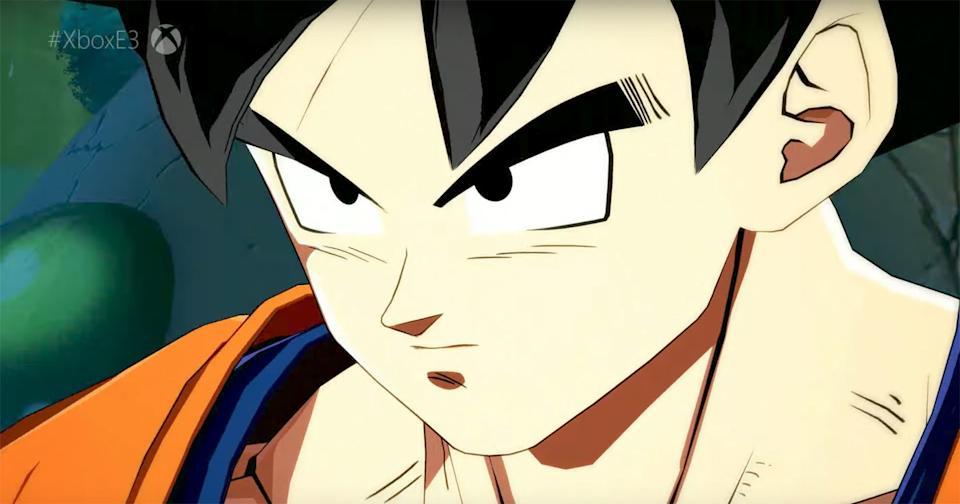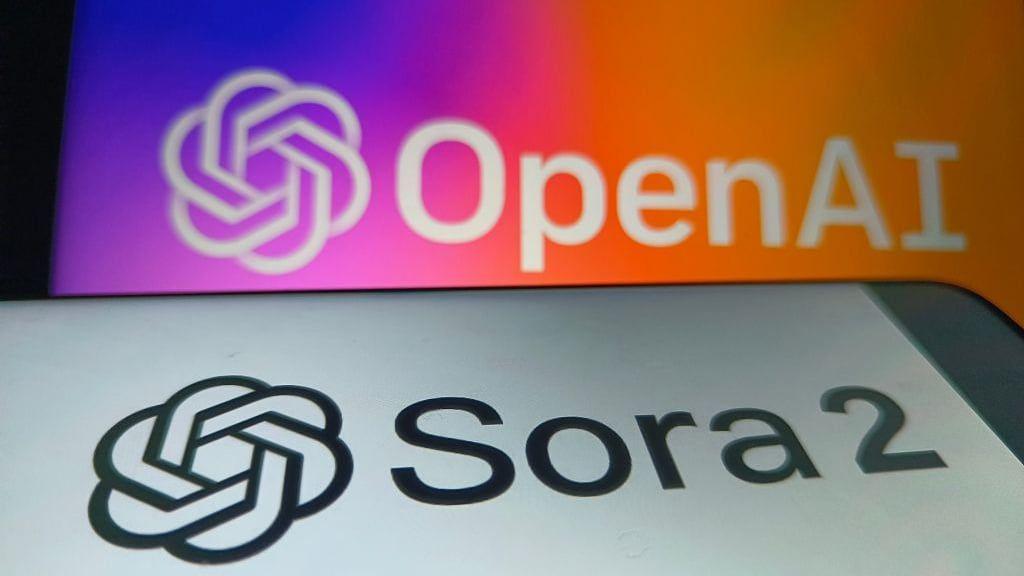Japan Confronts OpenAI Over Sora 2's Anime Copyright Concerns
4 Sources
4 Sources
[1]
Japan asks OpenAI to keep Sora 2's hands off anime IP
Tokyo cries foul over Sora slop abusing 'irreplaceable treasures' of anime, manga - oh, and copyright law OpenAI's Sora 2 video generator has gone viral, particularly among users churning out anime that looks suspiciously like Studio Ghibli and other copyrighted works. Alarmed by the threat to one of its prized cultural exports, Japan has reportedly lodged a formal request that the American firm knock it off. Japanese Minister of State for Intellectual Property Strategy Minoru Kiuchi revealed that the government made a formal request to OpenAI through the Cabinet Office's IP Strategy Promotion Secretariat last week during a press conference, as reported by Japanese media. "Anime and manga are irreplaceable treasures that we can be proud of around the world," Kiuchi said last week, according to Japanese tech news outlet ITMedia. "We have requested OpenAI not to engage in any actions that could constitute copyright infringement." For those who remain blissfully unaware of the copyright-headache machine that is Sora 2, OpenAI released its latest and greatest video and image generation engine at the end of last month, and the reaction from IP copyright holders was a near instantaneous cry of horror. Almost immediately upon release, videos began flooding social media with characters owned by Japanese gaming giant Nintendo in situations they might not be in were Nintendo making the ultimate decision, like Pikachu storming the beaches of Normandy or Mario being pulled over for driving his go-kart like a maniac (i.e., in keeping with his Mario Kart performance). Nintendo is among the companies that have registered their discontent. OpenAI reportedly told copyright holders that they would have to opt out of having their content digested and regurgitated by Sora 2, but the outcry from IP holders led CEO Sam Altman to quickly backtrack and promise to give more control to rightsholders over the use of their content. Altman made particular reference to Japan in his blog post, dated October 3, saying OpenAI wanted "to acknowledge the remarkable creative output of Japan," and noting he was "struck by how deep the connection between users and Japanese content is." According to Japanese politician Akihisa Shiozaki, that acknowledgement took political pressure to accomplish. "When I tried entering a prompt into Sora 2, it generated a succession of images of popular anime characters with such high quality that it was indistinguishable from the real thing," Shiozaki said in a blog post written days after Altman's Sora 2 note. "However, for some reason, characters whose rights are owned by major American companies, such as Mickey Mouse or Superman, did not appear." Shiozaki described the difference in how Sora was treating US vs. Japanese IP as "a serious problem under copyright law," specifically the AI Promotion Act enacted earlier this year, Section 16 of which gives the government the authority to take action against businesses that infringe on the rights and interests of Japanese citizens due to inappropriate use of AI. Shiozaki claimed in his post that he spoke directly with executives from OpenAI after he expressed concern over Sora 2's treatment of Japanese IP, and that Altman's statement was published shortly after their discussion. "Also, as promised, shortly after the announcement, unauthorized creation of problematic Japanese anime and game characters began to be blocked one after another, confirming a significant strengthening of filtering," Shiozaki noted. "It is clear that the company's policy change was based on strong concerns expressed by Japan." Minister Kiuchi's statement that the Japanese Cabinet Office had contacted OpenAI on its own comes after Shiozaki's blog post, however, suggesting the government still isn't happy with the state of Sora 2's copyright control. As of this writing, attempts to generate videos in Sora of particular Japanese characters (e.g., Final Fantasy VII's Cloud Strife, or Final Fantasy characters more broadly) were met with a copyright warning and refusal to generate the video. Asking for art in the style of popular Japanese animation studios like Hayao Miyazaki's Ghibli, on the other hand, still generated results. A number of anime-style videos mimicking various studios' styles still appear on the Sora app, suggesting Japan may have more to do to rein in the misuse of its "irreplaceable treasures." OpenAI didn't respond to questions for this story. ®
[2]
Japan asks OpenAI not to infringe on 'irreplaceable' manga and anime content
Japan's government has asked OpenAI not to infringe on anime and manga content that it called "irreplaceable treasures," according to a report from ITMedia seen by IGN. The request was made by a key minister in charge of AI and IP in response to numerous videos from OpenAI's Sora 2 generator that use copyrighted material from Japanese studios. "We have requested OpenAI not to engage in any actions that could constitute copyright infringement," said cabinet minister Minoru Kiuchi at a press conference last week. "Anime and manga are irreplaceable treasures that we can be proud of around the world." Launched on October 1, OpenAI's Sora 2 can generate 1080p videos up to 20 seconds long with sound. The company also released the Sora app that uses Sora 2 to generate TikTok-style videos of nearly anything. Anime has been a key theme, with many short videos replicating copyrighted materials from franchises like DragonBall and Pokémon. Despite the demand, Japan has been one of the more progressive nations when it comes to artificial intelligence. The nation's AI Promotion Act aims to boost the use of AI as an economic growth driver, while also outlining guidelines around copyright infringement. However, the topic of enforcement is still fuzzy so the government is trying to get a better grip on it. "Japan bears a responsibility to take the lead on making rules [around AI and copyright], precisely because we are a country... [that creates] anime, games, and music," said parliament member Akihisa Shiozaki on his blog. Last month, OpenAI said it had contacted studios to give them the option of opting out of Sora 2 training on their materials, Reuters reported. The new process requires movie studios and other content owners to explicitly ask OpenAI to exclude their copyright material from videos generated by Sora. It's not known which, if any, Japanese studios the company has contacted.
[3]
Stop Using Super Mario and Pikachu in Sora 2 Videos, Japan Tells OpenAI
The Japanese minister called anime and manga "irreplaceable treasures" OpenAI's Sora 2 video generation model, which was released on September 30, has reportedly received flak from the Japanese government over copyright infringement. The country has formally requested the company to stop copyright infringement on its intellectual property (IP). The artificial intelligence (AI) model powers the company's new Sora app for iOS, where users can generate AI videos for free and share them with their friends and other users. Many users have noted the close resemblance when attempting to generate videos with Japan's copyrighted characters, such as Super Mario, Pikachu, Goku, and others. Japan Is Not Happy With Sora's AI-Generated Videos According to Japanese outlet IT Media News, Minoru Kiuchi, Japan's Minister of State for IP and AI Strategy, said in a Cabinet Office press conference that the government has sent a formal request to OpenAI to "not to engage in any actions that could constitute copyright infringement." It was reportedly an online request sent by the country's Cabinet Office's Intellectual Property Strategy Promotion Secretariat. "Anime and manga are irreplaceable treasures that we can be proud of around the world," Minister Kiuchi was quoted as saying. Separately, Liberal Democratic Party (LDP) Deputy Secretary-General and House of Representatives member Akihisa Shiozaki urged the Japanese government to exercise Article 16 of the AI Promotion Act in a post, which grants it "the legal authority to request investigations and reports from relevant businesses and to provide necessary guidance and advice," in case of an AI-led copyright infringement issue. Notably, Sora 2 generations have drawn concerns over copyright infringement from the day it was launched. Earlier this month, OpenAI changed its existing policy for the Sora app, which stated that if a rightsholder of a character did not want Sora to generate the character, they would have to opt out of the process. Sora now works on an opt-in basis and gives rightsholders granular control over how these characters are depicted. In the post detailing the change, OpenAI CEO Sam Altman said, "We'd like to acknowledge the remarkable creative output of Japan--we are struck by how deep the connection between users and Japanese content is!"
[4]
Japan Requests OpenAI To Not Violate Anime & Manga Copyrights
We missed this earlier: The Japanese government has formally requested OpenAI to refrain from infringing on the copyright of Japanese cultural products like anime and manga, reported ITMedia. The revelation was made by Minoru Kiuchi, Japan's Minister of State (MoS) for Intellectual Property and Artificial Intelligence Strategy at a press conference on October 10, following concerns raised about anime-style videos featuring existing characters created via OpenAI's Sora 2 video generator. The request was reportedly made online by Japan's Cabinet Office's Intellectual Property Strategy Promotion Secretariat. For context, following Sora 2's launch on September 30, users created a number of anime-style videos with Sora and posted them on social media platforms, sparking concerns from Japanese authorities. In this context, Japanese Member of Parliament (MP) Akihisa Shiozaki posted on X on October 5 that the reproduction of copyrighted anime characters was a very serious issue that could threaten the Japanese creative industry. He also suggested that such videos were in violation of Japanese copyright laws. Interestingly, OpenAI CEO Sam Altman had announced two new policy changes on October 4 through his blog. First, OpenAI gave rightsholders more granular control over generation of characters: similar to the opt-in model for likeness, but with additional controls. In this context, Altman said that some rightsholders were interested in the possibility of "interactive fan-fiction" through Sora, but wanted to dictate the use of their characters. Furthermore, Altman revealed that OpenAI was planning to monetise video generation given its popularity, and intended to share some of this revenue with rightsholders. Developing AI models involves scraping vast quantities of data from the open internet, much of which could come under copyright protection. Content producers have regularly raised concerns about potential copyright infringement occurring from Large Language Model (LLM) training, both through the scraping of copyrighted material and its reproduction through AI content generators like Sora. And rightsholders across the world have sued AI companies as well, including OpenAI, for copyright infringement. Notable cases include Getty Images v. Stability AI and The New York Times v. OpenAI, with the latter company facing another lawsuit in India from news agency Asian News International (ANI). Notably, a US District Judge issued a crucial ruling in Bartz v. Anthropic in June 2025, which granted copyright holders their first victory against AI companies. The judge held that while training AI models on purchased copyrighted works is fair use, training on pirated material is not. Anthropic eventually opted to settle the lawsuit for $1.5 billion. Interestingly, Sora's ability to potentially create copyrighted material was already under scrutiny. According to a Wall Street Journal report, OpenAI was alerting talent agencies and studios about Sora 2 and offering an opt-out mechanism to copyright holders for over a week ahead of the launch. This opt-out process involved an explicit request from the original owners to exclude their work from the GenAI content that Sora will produce. OpenAI had previously differentiated between a person's likeness and copyrighted material, offering different protections for both. For Sora to generate a person's likeness, it would require affirmative consent from said person. On the other hand, the AI model would be capable of generating copyrighted material by default, unless rightsowners opted out. Notably, this is not the first time OpenAI has received criticism for possibly infringing upon the copyright of Japanese animators. Earlier this year, a popular trend involved using ChatGPT to edit photos to resemble the art style of Studio Ghibli, a famous Japanese anime studio. Interestingly, Japan has one of the most liberal copyright regimes in the world when it comes to AI. For context, the East Asian country allows AI developers to train their models on copyrighted content, even for commercial purposes. And in fact, a 2024 white paper published by the government was actually titled "Toward the world's most AI-friendly country". Furthermore, an explanatory document published by the Japan Copyright Office (JCO) stated that AI-generated material which applies the "creator's style" of a pre-existing copyrighted work does not infringe copyright if the style merely encompasses an idea. However, if a product of AI has a "similarity" or "dependence" with an existing copyrighted work, then it would constitute copyright infringement. In other words, an AI model can create an image or a video in a style inspired by an existing copyrighted work, but cannot directly copy any characters. Japan is probably the first nation to formally request an AI company to refrain from copyright infringement. This is despite its previously stated desire to become one of the world's most AI friendly countries, and the enactment of a liberal copyright regime geared towards facilitating AI development. Notably, animation is one of Japan's most recognisable media exports, bringing in $22 billion in revenue in 2023. Thus, Japanese government authorities are quick to jump in and attempt to protect the industry from any potential threat. However, this also exposes a slight contradiction in the island nation's copyright policy. If AI companies are allowed to train models on copyrighted material, then it is only natural that their outputs also contain copyrighted material.
Share
Share
Copy Link
The Japanese government has formally requested OpenAI to prevent copyright infringement of anime and manga content by its Sora 2 video generator. This move highlights the growing tension between AI technology and intellectual property rights in the creative industry.
Japan's Formal Request to OpenAI
In a significant move to protect its cultural assets, the Japanese government has formally requested OpenAI to refrain from infringing on the copyrights of anime and manga content through its Sora 2 video generator
1
. Minoru Kiuchi, Japan's Minister of State for Intellectual Property Strategy, revealed that the government made this request through the Cabinet Office's IP Strategy Promotion Secretariat2
.
Source: MediaNama
The Sora 2 Controversy
OpenAI's Sora 2, launched on September 30, 2025, has sparked controversy due to its ability to generate high-quality videos that closely resemble copyrighted anime and manga characters
3
. Users have been creating and sharing videos featuring popular characters like Super Mario, Pikachu, and others, raising concerns about potential copyright violations1
.
Source: Engadget
Japan's Stance on AI and Copyright
Despite Japan's progressive approach to AI, as evidenced by its AI Promotion Act aimed at boosting AI use for economic growth, the country is now taking a firm stance on protecting its intellectual property
2
. Minister Kiuchi emphasized that anime and manga are "irreplaceable treasures" that Japan can be proud of worldwide3
.OpenAI's Response and Policy Changes
In response to the growing concerns, OpenAI CEO Sam Altman announced policy changes on October 4, 2025. The company shifted from an opt-out to an opt-in model for character generation, giving rightsholders more granular control over how their characters are depicted
4
. Altman also mentioned plans to monetize video generation and share revenue with rightsholders4
.Legal and Political Implications
The issue has gained political attention in Japan, with Liberal Democratic Party Deputy Secretary-General Akihisa Shiozaki urging the government to exercise Article 16 of the AI Promotion Act. This article grants the government authority to request investigations and provide guidance in cases of AI-led copyright infringement
3
.Related Stories
Global Context of AI and Copyright
This controversy is part of a broader global debate on AI and copyright. Several lawsuits have been filed against AI companies, including OpenAI, for alleged copyright infringement during the training of large language models
4
. A notable case in the US (Bartz v. Anthropic) resulted in a ruling that training AI models on purchased copyrighted works is fair use, but using pirated material is not4
.Future Implications
As AI technology continues to advance, the tension between innovation and intellectual property protection is likely to intensify. Japan's actions may set a precedent for how other countries approach the regulation of AI-generated content and its impact on creative industries. The outcome of this situation could have far-reaching implications for the future of AI development and copyright law globally.
References
Summarized by
Navi
[1]
Related Stories
Studio Ghibli and Japanese Publishers Challenge OpenAI Over Unauthorized AI Training
03 Nov 2025•Policy and Regulation

OpenAI's Sora 2 Faces Copyright Backlash, Prompts Policy Shift
03 Oct 2025•Policy and Regulation

Studio Ghibli's Artistic Legacy Faces AI Challenge: Copyright and Creativity in the Digital Age
02 Apr 2025•Technology

Recent Highlights
1
Google Gemini 3.1 Pro doubles reasoning score, beats rivals in key AI benchmarks
Technology

2
Meta strikes up to $100 billion AI chips deal with AMD, could acquire 10% stake in chipmaker
Technology

3
Pentagon threatens Anthropic with supply chain risk label over AI safeguards for military use
Policy and Regulation





